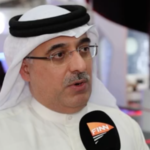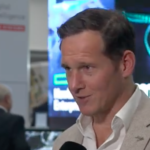The RAF is taking steps on the path to improved sustainability with research into a variety of new technologies including new fuels and propulsion systems, explained Group Captain Willy Hackett.
Speaking at the Farnborough International Airshow in July, he said: “What we’re looking to do is have an environmentally friendly aeroplane, ideally zero emissions.
“We’re going to work with global industry [and] UK industry to produce a proof of concept demonstration, effectively an experimental prototype aeroplane, where we look at electric power, perhaps hybrid and even hydrogen, and we’re going to do that in the next two or three years work with industry to prove these technologies. Before we select which one we’re going to use for the real aeroplane and bring it into service.”
Zero emissions aircraft
The RAF has been offered access to a ground-breaking zero emissions aircraft at an early stage to gain a better understanding of new technologies on offer.
Driven by the Astra initiative, the RAF is investing in the Next Generation Air Force by developing capabilities at the cutting edge of technology, with a view to improving the RAF’s ability to deliver air and space power through the most sustainable means.
The RAF has also partnered with Zero Petroleum to research and develop synthetic fuel technology, which has the potential to eventually eliminate reliance on fossil fuels.
Synthetic flight
Having flown a world-record first 100 per cent synthetic flight in November 2021, the next phase will conduct research into scaling-up the technology and producing more fuel for certification and testing.
Hackett added: “It’s all about energy assurance. Right now we rely on global suppliers of oil and gas and the political landscape as we’ve seen has changed recently. If we perfect this technology, like we think we’re going to, we’ll have the ability to create our own fuel.
“So that’s the beauty of it: when we deploy on operations around the world we can take a mini refinery with us, we can produce our own fuel where it will be completely environmentally friendly, but we can assure that energy supply for ourselves.”
Subscribe to the FINN weekly newsletter

